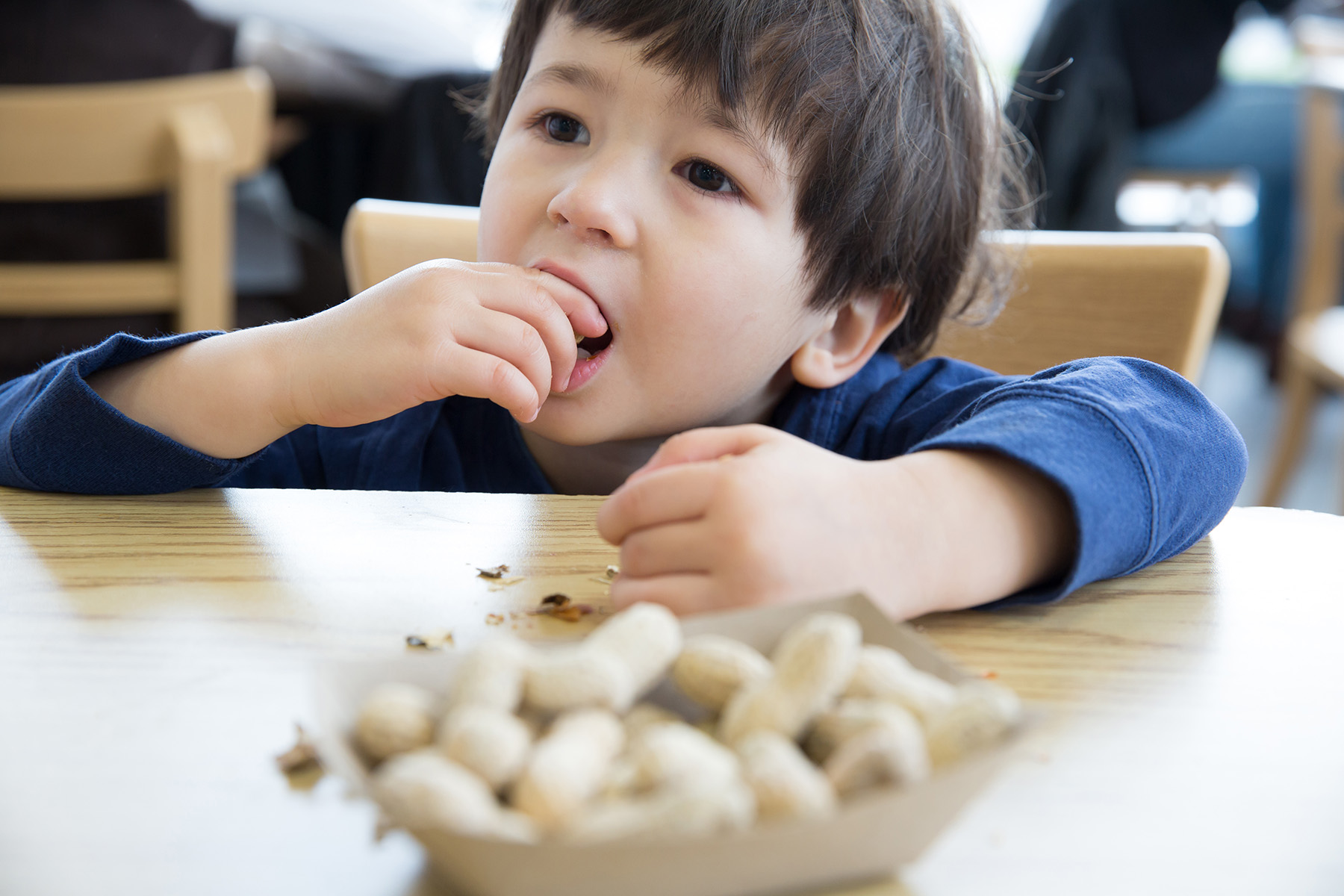Helping Kids Cope with Food Allergies

One in 13 children have a food allergy. Is your child among them?
Gary Kleiner, M.D., a pediatric allergist with the University of Miami Health System, urges parents to keep three things in mind. “The goal is for children to have a normal life. Don’t live in fear, but be prepared with a plan.”
Even so, navigating holidays, parties, camps, and lunchrooms can be challenging. That’s especially true for the nearly 40 percent of children who have experienced a severe or life-threatening allergic reaction.
Here are some strategies to help:
Early exposure
The American Academy of Pediatrics now recommends introducing highly allergic foods (milk, eggs, peanuts) after four to six months of age. Introduce one food at a time and feed it to your child two to three times per week. High-risk infants prone to eczema should have a blood or skin test first. To boost your baby’s health, breast feed for six months or more.
Read labels
Dr. Kleiner advises “reading every label, every time,” when grocery shopping. Unfortunately, some labels are vague, stating only that products “may have been” processed in a facility where peanuts are present. Your task is easier if you stick with large manufacturers.
Exercise extra caution around the holidays, when candy is often repackaged. A peanut butter cup, for example, might be packaged as a heart, egg or pumpkin, depending on the season.
When traveling or dining out, Dr. Kleiner recommends using “chef cards” that clearly communicate to food preparers that your child has a serious allergy. For other travel tips from Dr. Kleiner, read this article.
Passing up peanuts
Due to nut allergies, a childhood staple, the PB&J sandwich is off-limits for many kids. There are tasty alternatives. Try almond butter, if your child is not sensitive to tree nuts. Sun butter, made from sunflower seeds, is also tolerated by most children. Nut butters make a good peanut butter substitute in baked goods, too.
Communicate and educate
Dr. Kleiner urges parents to educate their children’s caregivers, teachers, and other parents. “More classrooms are peanut and tree nut free now, but have a 504 Plan in place to accommodate your child’s health needs. Likewise, most school nurses can deal with food allergies, but verify this with the school.”
With summer approaching, the search for camps is on.
“In general, school- or university-based camps are more allergy aware than some community-based camps run by volunteers or staffed by teenagers.” If your child is involved with Scouts or sports, volunteer with their troop or team to ensure food safety awareness. Most importantly, partner with a pediatric allergist and your pediatrician to create a food allergy action plan for your child.
Mainstream and empower
By age five, many children can take on more responsibility. “Teach them to carry a fanny pack with Benadryl whenever they leave home. At age eight or nine, they can carry an epi-pen in the pack. As they mature, encourage them to manage their own allergies.”
According to Food Allergy Research & Education (FARE), one-third of kids are bullied about their allergy. Again, Dr. Kleiner underscores the importance of communication and preparation.
“Build a good relationship with your kids, so by the time the teenage risky behaviors emerge, you can empower them with a plan. If your child is being bullied, speak to the school and other parents.” He also suggests reviewing FARE’s Be a PAL: Protect A Life program.
With food allergies increasing, progressive health care providers understand the need to support parents.
“In addition to health issues, university-based health care systems such as UHealth address quality of life issues related to allergies. We have psychiatrists on staff and ask parents what we can do to ease their burden.”
Resources for parents
Check out these websites recommended by Dr. Kleiner:
- Allergicchild: Resources for managing allergies – from infancy to college.
- Kidswithfoodallergies: A division of the Asthma and Allergy Foundation of America, the site empowers families dealing with food allergies.
- Snacksafely.com: Offers a large snack guide of allergy-friendly products used by thousands of U.S. schools.
To schedule an appointment at UHealth’s Allergy and Immunology department, call 305-243-8441 or click here.
Nancy Moreland is a contributing writer for the UMiami Health News Blog. She has written for several major health care systems and the Centers for Disease Control and Prevention. Her writing also appears in the Chicago Tribune.
Tags: allergist, children, food allergies, Food Allergy Action Month, food sensitivities, Gary Kleiner
